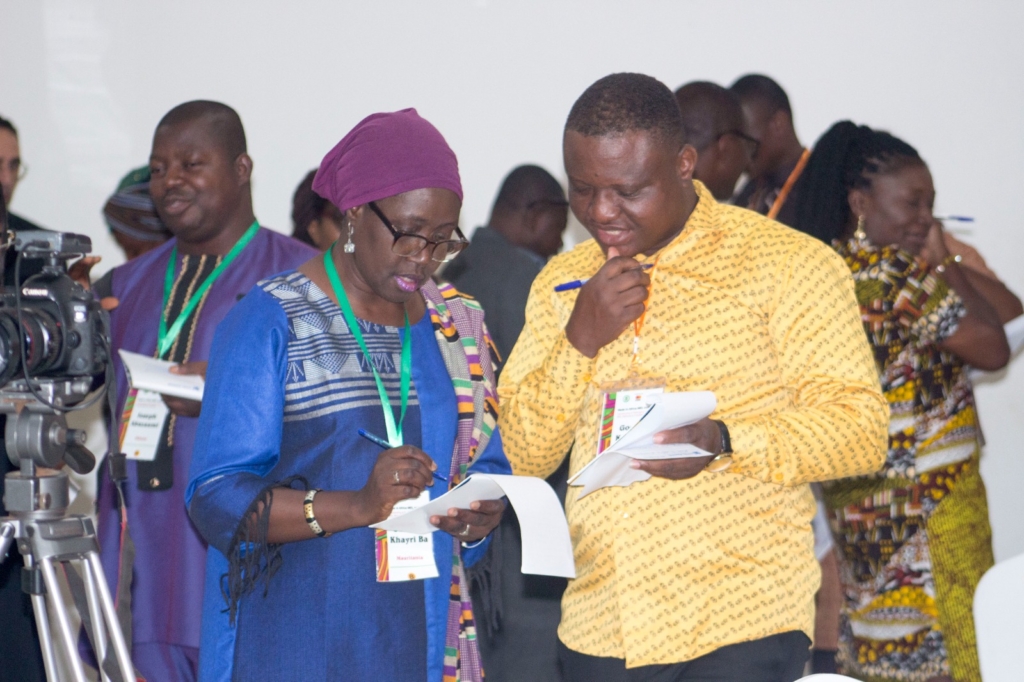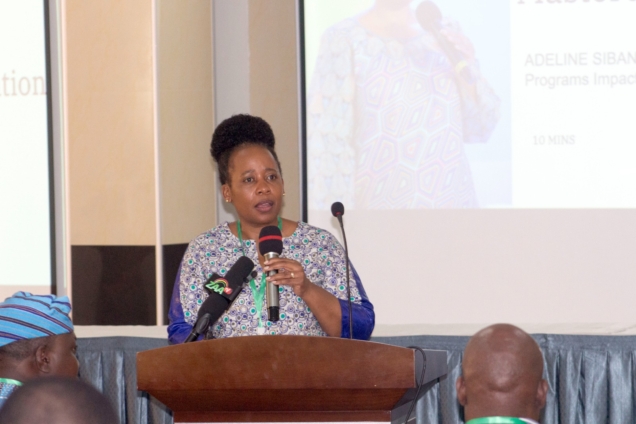A senior director at the Mastercard Foundation, Adeline Sibanda, has advocated for the utilisation of Indigenous knowledge systems, local ways of knowing, cultural practices, and an understanding of diverse local contexts (referred to as "Made in Africa Approaches") to inform the evaluation practice in Africa.
“We believe that the use of Indigenous knowledge systems, local ways of knowing, cultural practices, and consideration of the different local contexts (Made in Africa Approaches) should shape the evaluation practice in Africa,” Madam Sibanda said.
Adeline Sibanda emphasised the significance of altering the current norms and perspectives regarding the conception and execution of evaluation practices in Africa, indicating that the Foundation is proud to be associated with organisations that are working hard to recover, revive and redeploy these knowledges.
She was speaking at a 3-day event in Tamale dubbed, “De-colonising and Re-imagining Made in Africa MEL Methods and Practices.” The event envisions a future where Africa reshapes its own narratives: Decolonizing and Reimagining Made in Africa monitoring, evaluation and learning (MEL) Methods and Practices.
“We are convinced that we are making history, some of the approaches, methods and tools developed here will guide the way evaluation approaches are used globally. We are at the dawn of crafting our own evaluation and measurement approaches that are Made in Africa,” she stated.

The Mastercard Foundation is supporting three consortia, namely the University for Development Studies, University of Botswana, and the Bertha Centre, to implement the Made in Africa Evaluation initiative. This initiative aims to address power imbalances, amplify voices, and promote knowledge empowerment for marginalized youth in Africa.
The Foundation is also collaborating with Carleton University to foster a network of African scholars specializing in indigenous knowledge. Additionally, they are partnering with the Council for the Development of Social Science Research in Africa (CODESRIA) to train early career researchers in exploring, preserving, and collaboratively utilizing indigenous and alternative knowledge alongside knowledge keepers.
For Adeline, no evaluation exists outside a context or cultural realities hence, it is important to implement a youth centred, inclusive, Indigenous approach in the Foundation’s work. “We need to interrogate how we as evaluators arrive at knowledge. What lenses are we using and are they appropriate.”
She commends Dr Sulley Gariba (1958-2021), who was a major contributor to the AfrEA efforts to decolonize evaluation by promoting high quality evaluations led by, and rooted in Africa, including evaluation theory and practice that is relevant and responsive to African contexts and needs, which we now know as the Made in Africa Evaluation.
Latest Stories
-
Paris 2024: Opening ceremony showcases grandiose celebration of French culture and diversity
2 hours -
How decline of Indian vultures led to 500,000 human deaths
3 hours -
Paris 2024: Ghana rocks ‘fabulous fugu’ at olympics opening ceremony
3 hours -
Trust Hospital faces financial strain with rising debt levels – Auditor-General’s report
4 hours -
Electrochem lease: Allocate portions of land to Songor people – Resident demand
4 hours -
82 widows receive financial aid from Chayil Foundation
4 hours -
The silent struggles: Female journalists grapple with Ghana’s high cost of living
4 hours -
BoG yet to make any payment to Service Ghana Auto Group
4 hours -
‘Crushed Young’: The Multimedia Group, JL Properties surprise accident victim’s family with fully-furnished apartment
5 hours -
Asante Kotoko needs structure that would outlive any administration – Opoku Nti
5 hours -
JoyNews exposé on Customs officials demanding bribes airs on July 29
6 hours -
JoyNews Impact Maker Awardee ships first consignment of honey from Kwahu Afram Plains
7 hours -
Joint committee under fire over report on salt mining lease granted Electrochem
7 hours -
Life Lounge with Edem Knight-Tay: Don’t be beaten the third time
7 hours -
Pro-NPP group launched to help ‘Break the 8’
8 hours

